|
Welcome Cat! Thanks for taking some time to chat about writing. First, a few quick-fire questions: What is your writing beverage of choice? Which of the nine worlds of Norse mythology would you most like to visit for a holiday? And if you could cast anyone as Sigyn in a movie adaptation of The Goddess of Nothing at All then who would it be? Thank you for having me! I’m so thrilled! Writing Beverage: A giant glass of ice water. I’m working on being a hydrated human. Nine Worlds Holiday: Alfheim. I don’t need to be in the middle of any Aesir/Vanir/Jotun wars, so Alfheim seems like the most chill place to not get murdered. I also imagine it to be quite pretty. Casting Sigyn: I think I’ll go with Zendaya with Mary Jane from Spider-man vibes. Nerdy, confident, self-sufficient. However, if I wanted to stick to the themes of the book, I’d hire an up-and-coming queer woman looking for a breakout role, because that’s the perfect description of Sigyn in the first place; someone who knows what they want but is still waiting for their big break. "Casting Sigyn: I think I’ll go with Zendaya with Mary Jane from Spider-man vibes. We have a unique connection, though we both live on opposite sides of the globe: we are both Canadians! How has being Canadian influenced your journey as a writer and why do you think so many Canadians (you and I as prime examples!) are drawn to Scandinavian mythology? Being Canadian often comes with certain privileges that other countries don’t have immediate access to. Despite growing up in less than ideal circumstances, I had access to education and free time and libraries, and all of that plays into becoming an author. On the other hand, however, I always felt a personal lack of culture and tradition growing up. Perhaps that’s simply an issue of the grass always being greener somewhere else, or because growing up in a small backwater town didn’t provide for a lot of cultural experiences. I was always looking for something to fill that void, and often found it through story. "On the other hand, however, I always felt a personal lack of culture and tradition growing up... As for why Canadians are drawn to Scandinavian mythology, I’ve personally found a sense of ‘home’ in the tone and setting. Scandinavian people worked hard on land and sea, suffered through harsh winters, and also had bears coming up on their back porch to see what’s for dinner. I’m half Newfoundlander, half Nova Scotian, and in my rural experience, we’re generally a humble, blue-collar people with a history of hard work and sailing and making the best of things. Even the landscape of Newfoundland is full of fjords and puffins. Greek, Roman, and Egyptian mythology take place in these bright, warm worlds that seem so foreign to me. But dark humour, harsh snowstorms, adversity? That was something I understood. "Greek, Roman, and Egyptian mythology take place in these bright, warm worlds that seem so foreign to me. But dark humour, harsh snowstorms, adversity? That was something I understood." The Goddess of Nothing at All explores the Norse cosmos through the eyes of Sigyn, known mostly as Loki’s faithful wife. I’ve recently enjoyed other ‘Alternative Perspective’ stories about the Norse myths, including Joanne Harris’ The Gospel of Loki, Geneveive Gornichec’s The Witch’s Heart, and Bjorn Larssen’s Children, so this seems very timely! What drew you to the character of Sigyn and what do you hope readers walk away with after reading this story? It would be romantic to say that I was initially drawn to Sigyn, but I wasn’t. How can you be drawn to someone whose One Job is to hold a bowl really good? But after Neil Gaiman’s rendition was released, I realized there were too many gaps in the story. So I read the Eddas, sure that I’d find answers there. Spoiler alert—I did not. The things that I wanted to know were just gone. Erased. So I started writing my own answers. I was drawn into the questions of cause and effect. Why doesn’t Odin make more logical choices? Why does Loki escalate from this troublemaker to a world-ender? What wouldn’t I do if people sewed my lips shut, tortured me, and took my children away? And finally, what kind of person stands by the man who ends the realms? Who is she? How strong must she have been to have endured all of the things that came before that cave? I had to know who she was. As far as what I’d like people to walk away with, the book is different things to different people. What I do hear over and over from women and non-binary readers is that they’ve lived part of Sigyn’s life. They know what it feels like to be overlooked and underestimated. They’re familiar with expecting nothing. And some of them have loved someone who is… self-destructive in nature. Mostly, I hope that people can have fun with the book, but I hope that it lets some readers feel seen. It was a work of catharsis for me, and maybe it can be that for someone else. The Norse myths are particularly notorious for being hard to adapt; with multiple, conflicting historical sources (few, if any, of which are complete), I’ve found that I do have to take some ‘artistic license’ at times. Were there any gaps in Sigyn’s story that you felt you had to fill in yourself? What was that process like and how did you make those decisions? *Unhinged laughter* Sigyn’s story is 97% gaps. It was both a wonderfully blank slate and a daunting challenge. To get started, I used her surroundings as a template. She has a reputation in some heathen circles as either the abused spouse or child bride, and I knew I didn’t want that. Loki is canonically cunning and handsome. It stands to reason he could find a wife he likes and respects without it having to be heinous, especially if we don’t relegate him to the role of Norse Lucifer. So what kind of woman would Loki respect? Probably someone smart, self-sufficient, bold, and driven. And if we look at so many godly duos across pantheons, we see things like Love marrying War, Earth and Sky, Yin and Yang. So if Loki is wild, unpredictable, and chaotic, Sigyn should be grounded, reliable, and loyal. "And if we look at so many godly duos across pantheons, we see things like Love marrying War, Earth and Sky, Yin and Yang. So if Loki is wild, unpredictable, and chaotic, Sigyn should be grounded, reliable, and loyal." After that, my priorities were to give her active roles in any myth she appeared in, to make sure she had agency even in places where the myths weren’t about her, and to ground every character’s choices in a logic and sense of morality that was true to their character. Those concepts guided all of my narrative choices as to what happened with each myth and how the book progresses from Sigyn meeting Loki in chapter two to the end of the realms. I often reflect on why we, in a modern day society, reach back to mythic narratives such as the Norse myths. What do you think the myths have to offer citizens of a digital, globally connected world which is steeped in science and rationalism? Myth is one of the doorways into something we used to have and no longer do. It speaks of a perceived “simpler time” with different expectations and a sense of magic still left in the world. If you visit the right places on the internet, there’s a resurgence of people yearning for this. Cottagecore, YouTube channels about moving to the woods, an explosion of the tiny house market. You can also see this in the popularization of spiritual practices like witchcraft, heathenry, paganism, etc. Of course, anyone who’s studied ancient Scandinavia, Rome, or Egypt knows that life wasn’t actually simple; imagine telling all of North America that they had to make their own bread every day! And as much as I believe in science and rationalism, they’ve pushed us further from a more natural life that values slowing down. They’ve stolen the idea of magic, something that humanity has always believed in. These myths let us peek back at the past, to witness magic, and believe in something immeasurable, whether that’s abstractly or in the form of a spiritual practice. One of the reasons I think that alternative viewpoint narratives have become so popular, at least here in Canada, is that we ourselves are re-examing and re-evaluating our own colonial history; the ‘good guys’ according to history textbooks don’t seem so good after a closer inspection. Are you hoping to stimulate social or political conversation about our own views of history or are you aiming to simply write a memorable story that engages readers? The examination of colonialism is long overdue. Very little of my book relates directly to that because the world doesn’t need another white Canadian opinion about what we did, but it’s also hard to write about queer Norse gods without reaching into the elimination of queer history. A lot of the world’s history has been examined by cisgender, white, straight, Christian men. Because of the rigidity of the last several hundred years in the west, we’ve seen archaeologists pick up an urn with two female lovers on it and declare them the very best roommates. (If you’re looking for a great beginner’s resource on this idea, the book Ancient Bodies, Ancient Lives: Sex, Gender, and Archaeology by Rosemary A. Joyce is a fantastic place to start.) And before archaeologists, armies were destroying cultures and stripping down religions, often putting an end to generations of happy queer existence. For example, before the land that became Canada was colonized, Indigenous peoples celebrated the Two-Spirit identity. Then Christianity arrived with its rigid ideas of marriage and a penchant for destruction. So we know that queer people have always existed, and were sometimes worshiped, so how did we get from worship to outlaw? "The examination of colonialism is long overdue. Very little of my book relates directly to that because the world doesn’t need another white Canadian opinion about what we did, but it’s also hard to write about queer Norse gods without reaching into the elimination of queer history." Like most things Viking, Christianity showed up and lots of knowledge was lost, so we don’t have a clear picture of queer life. It certainly wasn’t a utopia since (to oversimplify) it was considered an insult to be called “a bottom.” There are many things in the Eddas that could easily be read as queer and many people in the last years have taken up this angle of research. But there are also plenty of people who want to use Viking age culture at the forefront of their supremacist ideology. So when I began writing this book, it was very important to me that the cast of gods were primarily gods who have been overlooked or who were (canonically or not) outcasts, unknown, or marginalized. We may not ever perfectly know what a queer life from that time looked like, but in this respect and many others, I’d love for my readers to be questioning what we know, who told us, and how the past has been coloured by the victors. Can you give us a sneak peek at what your next project will be? Can we expect a sequel or are you exploring something new? I’ve got two projects lined up. First is Book 2, which is going to deal with the aftermath of The Goddess of Nothing at All and will be themed around grief and healing. After that, I’ll be jumping back into a queer witch story that’s highly inspired by puritan witch hunts, the agency of women, and indoctrination. Last, but not least, where can readers find your work and keep up to date on your latest publications? The Goddess of Nothing at All can be found via most major retailers, should be available to request at your local bookstore, and you can even ask your library to order a copy! Try this link to find out where it’s available in your region. The best places to keep up with me are on Twitter, Instagram, or Tiktok, and if you’re a real go-getter, you can sign up for my newsletter via my website! If you preorder, don’t forget to grab your preorder perks here! Sign up for Cat's newsletter via her website to keep up to date on all her latest projects!
0 Comments
Welcome M.C.! Thanks for taking some time to chat about writing. First, a few quick-fire questions: Cafes or Pubs? Flying or sailing? And if you could have any magical creature as a pet, what would it be? Hello, Joshua! It’s my pleasure. Thank you so much for inviting me. Ooh, these are toughies. I’d have to say pubs over cafes since I could live off pub food. I prefer flying as long as I have a window seat, and if I could have any magical creature as a pet, I’d probably want a phoenix. I love birds, and I like the idea of having one that would continue to be reborn from its flames as it got older. "I love birds, and I like the idea of having one that would continue to be reborn As you shared in your writing blog, you made the shift from working another job and writing part time to writing full time early in 2019. How has that shift affected your experience of being a writer and how do you manage your writing schedule without burning out? I’m very glad I made the switch to being a full-time writer. It was pretty scary to leave my job at first, but I knew it was the right move for me. Through a lot of trial and error, I’ve learned to pace myself, ask questions, and make deadlines. I make a deadline for pretty much everything in my life and give myself downtime at the end of the day, so I don’t burn out. I also try to take weekends off from social media, so I feel refreshed for the new week. The Echo, the prequel to The Adventures of Dauntless Grimm was just re-launched on June 30th - Congratulations! Talk us through the process of launching this prequel and how it sets the stage for the series that follows. Any tips for fantasy authors who are just starting their world-building journey? Thank you so much! I’m very happy about the relaunch of The Echo. I made a few tweaks to the story, created a map, and had an incredible artist, Anna from Eerilyfair Design, create a beautiful new cover for it. The prequel is pretty tame compared to the rest of the series. I really wanted people to be able to dip their toe in first before getting to know the darker sides of the world my main characters live in. I figured what better way than to start at the beginning then when they’re in school and haven’t quite seen the world for all that is it yet. The biggest tip I’d give any writer is to write down every detail about the world for yourself. Even if you never use it, it’s good to know your world inside and out. Also, I know it feels like your novel will never be completely finished. There are always new things to explore and tweaks to be made. Sometimes you just have to take a deep breath and press that publish button. "The biggest tip I’d give any writer is to write down every detail about the world for yourself. Even if you never use it, it’s good to know your world inside and out." The starting point for Quesys, your protagonist, was a character you developed during a table-top roleplaying game (TTRPG) which intrigues me as I have never built a character this way. What advantages do you see from a writing perspective in ‘growing’ your understanding of a character by playing them in an RPG before putting them on the page? Role-playing games allow you to really get to know your character. How they walk, talk, think and act in different scenarios. It’s what really inspired me to write about my main character, Quesys. When writing, I also get to mix things up and change things I later decided didn’t suit her character. RPG games, video games, reading and writing, allows us to immerse ourselves in a fantasy world of our or someone else’s making and I’m very happy I got to experience that with Quesys on two fronts. If I ever write a new series, I’d probably start them out as an RPG character again and see where they take me. "RPG games, video games, reading and writing, allows us to immerse ourselves in a fantasy world of our or someone else’s making..." One of my favorite writing topics is magical creatures. In the Syndellian Queendom there are some familiar races such as elves, goblins, humans, dwarves, and gnomes, but also some more unique ones such as gebens and half-zorns! Tell us about the creature races of your novel and how you made their distinct societies work together (or not!) within the realm of Westshore. Unfortunately, in the divided elven city of Siannodel, many of the races are at odds with one another. Years of war, prejudice, and ignorance, especially between the goblins and elves, have made living there difficult for many. Luckily, not all who live in the Syndellian Queendom feel that way. There are many more races in the Dauntless adventures which will be brought up and in more detail in the later books, but the ones mentioned in the prelude are the first created by the gods of Life and Death. Mostly humans and elves live in Siannodel, but many other races have made their home in different parts of Westshore. For example, Gebens and gnomes are seen by most as more neutral-tempered, whereas half-zorns or goblins are perceived by many to be unintelligent and brash. All of which isn’t true, of course. As my books continue, many of my characters will get to see beyond the stereotypes society has made for them, and some will become better people for it. We share two particularly unique features as writers: we are both Canadians writing fantasy! How do you feel that living in Canada affects your writing and what do you think Canadian writers of fantasy have to offer the world at large? Do you see any advantages or disadvantages to being a fantasy writer in Canada? I like reading fantasy novels from authors all over the world. I especially love when they include the lore and culture of their country into their writing. I think the same goes for Canadian writers. We live in a mosaic society, so I try to bring a little bit of lore from many cultures into my books. I’m a big fan of planting “Easter eggs” in my stories. If you look closely, you may catch them. I’d say the only real disadvantage of being a Canadian writer for me is using the letter “u” in my writing. Most of my programs are set up to spell check in American, so whenever I write “neighbour” or “colour,” it yells at me to get rid of all my “u ’s”. It’s easily fixed though so it’s not a real bother. "I like reading fantasy novels from authors all over the world. I especially love when they include the lore and culture of their country into their writing." Can you give us any hints or sneak peeks of what is next in The Adventures of Dauntless Grimm? Ooh, you want spoilers, eh? Hmm alright. Well, in the next book, we get to meet some new players in the game. Future readers can guess whether they’re good or bad or even neutral. We’ll get to see Quesys aboard the Rusty Rod, see her fight a new foe, watch as she asks about the Spice Wars that nobody deigns to talk about, and of course, complain about not having a decent pair of pants with pockets. We get to see how Sunny and Darcassian get along (or don’t). Also, we learn a bit more about the plane of existence our MCs live in. The good, the bad, and the ugly. "We’ll get to see Quesys aboard the Rusty Rod, see her fight a new foe, watch as she asks about the Spice Wars that nobody deigns to talk about, and of course, complain about not having a decent pair of pants with pockets." Last, but not least, where can readers find your work and keep up to date on your latest publications? You can find me on Twitter, Facebook, and on my website where you can sign up for my mailing list and get sneak peeks of upcoming projects. I’m currently working on fixing/setting up my Tumblr and Instagram accounts. You can also find my first book, The Echo: A Prelude to the Adventures of Dauntless Grimm, on Amazon. To sign up for M.C. Sheridan's newsletter, check out her website!
Welcome Lyra! Thanks for taking some time to chat about writing. First, a few quick-fire questions: What is your favorite coffee shop in the world? Who is your favorite 18th century rogue? And if you could have one of the treasures that Loki convinced the dwarves to forge for the gods to save his own neck then which one would it be? Thank you so much for having me! Let’s see, my favorite coffee shop in the world would have to be Demel, which is a cafe in Vienna, Austria, and has THE BEST pastries I’ve ever eaten. My favorite 18th century rogue is the Italian adventurer—and all around awful man—Giacomo Casanova. Seriously A+ rogue. Who else would you find selling counterfeit mercury? Love him forever. And if I could have any treasure made by the dwarves... hmmm... that would have to be Gullinbursti, because you’d always have a great conversation starter, and never need a flashlight again. "My favorite 18th century rogue is the Italian adventurer—and all around awful man—Giacomo Casanova. Seriously A+ rogue." You and I share a love of Norse Mythology; in particular, your work focuses on the trickster god Loki. What elements of Loki’s character do you hope to highlight in The Nine Worlds Rising? Are there any misconceptions you want to challenge? What is it about this Norse god in particular that keeps you coming back to write more books? The elements of Loki’s character I hope to highlight in my series are really his complexities. He is a trickster. He is capable of doing both good and bad, helping or hindering. Because his nature is chaos, that chaos ends up affecting everyone and everything around him, and not always for the best. I mean, he does try his hardest, but...there’s still probably a 9 out of 10 chance whatever choice he makes is going to result in some cataclysmic event. But that’s the point, Loki just can’t help himself and keeps getting in his own way, preventing himself from ever having any kind of peace, which, in my series, is truly all he wants. The main misconception about Loki I try to challenge is that he is “the bad guy.” I mean, yeah, Ragnarok wasn’t great, but Loki in the mythology is definitely a figure you can see grow darker and darker as he’s continually pushed, proded, ostracized, and, you know, tied to a rock with his son’s entrails and snake venom dripping over his face. That would give anyone a major case of the grumpies. Villains aren’t born, but made. And I see Loki the “World Breaker” being the creation of the Aesir’s own greed, lies, and broken oaths. As I mentioned earlier, his complexities are an enigma to me I can’t help but explore and try to figure out. Being an outsider also makes Loki relatable and sympathetic, which is only increased when you factor in his own nature forcing him into a cycle of causing pain which he can’t ever seem to escape from. However, there is also the darker side of him. That razor edge filled with spite and danger that takes pleasure in crashing parties and airing out everyone’s dirty laundry. With Loki, there is always a new layer to explore, whether it's trying to figure out his motives to end the Nine Worlds, or answering the question: How would things have been different had the gods shown more (a lot more) compassion? "Being an outsider also makes Loki relatable and sympathetic, which is only increased when you factor in his own nature forcing him into a cycle of causing pain which he can’t ever seem to escape from." I have to go on a quick tangent here because you and I share a connection to the wonderful country of Switzerland as my mother’s family emigrated to Florida from St. Gallen. You have a wonderful description of Basel Leckerli (essentially Swiss gingerbread) on your website. What are some of your other favorite Swiss delicacies? That’s so awesome we share a Swiss connection! Having grown up in a household with a Swiss father, and now living with a Swiss spouse, there is never any shortage of Swiss goodies. Some of my favorite delicacies are Basler Brunsli, which are chocolate almond cookies, and kirsch filled chocolates called Kirschstengeli. On the savory side of things, I will never say no to a good rösti (basically Swiss hashbrowns), or raclette (melted raclette cheese poured over boiled potatoes). Many authors dream of writing a fantasy series such as you have with multiple books filling out the incredible universe of The Nine Worlds Rising. What advice do you have for authors who are right at the beginning, drafting their first book or simply world-building as they brainstorm? Ask yourself questions and daydream. Daydream as much as you can, and start exploring the small parts of your new world first, as this helps to not overwhelm you—you don’t need to know currency systems on day 1. With this in mind, relax and daydream just about a character’s bedroom. Where is it? What’s inside? (Bonus, this also helps you figure out your character!) Say you notice a collection of pink porcelain piggy banks. Where did they get them? Maybe they got them at the marketplace. Oh, there’s a marketplace in this world? Go there. What other wares do you see? What else is being traded at the market? (See, these might provide clues as to the culture). Is the climate warm or cold? Do people ride horses or dinosaurs? Oh, there are dinosaurs? WELL, now you have an entire NEW set of questions to think and daydream about...Rinse and repeat. Write down notes of what you see, feel, and smell. Trust your intuition. Soon, a world will start to emerge and you can have a fun and stress free way of bringing your story to life. Truth and Other Lies is the first book in your Nine Worlds Rising series and features the mischievous exploits of the Norse trickster god Loki. In what ways are reader responses to this book fulfilling your hopes for it and in what ways did reader responses surprise you? The response I’ve gotten from readers has been beyond all my hopes. They see and understand he is a complex character. He’s a product of not trusting others, and continually having his heart destroyed. Loki does a lot of not great stuff, as you said, “mischievous exploits,” but at the end of the day, he tries to do the right thing. Now, is this only because Thor is going to strike him with his hammer? Probably. All joking aside, this is a major question I try to ask in the series. Is Loki capable of selfless goodness? Readers are giving Loki a chance and taking this journey with him. "All joking aside, this is a major question I try to ask in the series. Is Loki capable of selfless goodness? Readers are giving Loki a chance and taking this journey with him." As far as how reader responses have surprised me...Let’s just say I made a very unconventional choice in explaining Odin’s reason for bringing Loki into Asgard. I wasn’t sure what the reaction would be, and I braced myself for ALL CAPS EMAILS. But I’ve been absolutely delighted how readers have embraced their story, and how I’m trying to explore the myths through this new lens. The Order of Chaos and That Good Mischief are Books 2 & 3 in The Nine Worlds Rising. I know that when I wrote The Everspring and The Elder Trees, Books 2 & 3 of The Saga of Torin Ten-Trees, it was a completely different experience as compared to the first. What elements of the writing process during the first book coincided with the second and third? What parts of the experience differed? And what did you take away from the process of completing the sequel? The one aspect of the writing process that remains the same over all books is that I keep to a “three main draft” structure. That is, after I collect my mess of notes and construct a synopsis, which gives me an overview of the story and I can more easily swap things around, I then write a quick first draft, which takes me around five weeks. After letting it sit a bit, I return to it and that’s when I do my main revision, implementing all the changes I kept track of while fast drafting version 1. This takes me the longest, and is also the hardest part of the process, as I’m merging in a bunch of things and small changes have big ramifications. This completed draft 2 is actually readable and is what I send to my editor. Draft 3 is me making smaller changes based on my editor’s feedback, as well as a beta reader’s. After that, it’s all the fun* detailed work like hunting down overused words, making sure character’s eye colors don’t change, etc. (*It is not fun.) "The one aspect of the writing process that remains the same over all books is that I keep to a “three main draft” structure." Now, how it has differed is more in the way I’ve learned to streamline and just learning more about my own process and how to optimize. Note apps have been a game changer for me vs writing fifty pages of random blips. This allowed me to make the first draft for book 2 and 3 much faster than it went for book 1, which took me about a year. Of course, a book 1 is always trickier as that’s the book where you are still learning about who your characters are, and the world they inhabit. What I took away with completing the sequel is a peace knowing that the characters have really come into their own. Whereas we were still getting to know each other in book 1—me trying to set up their story lines. Them throwing tantrums about it— with book 2, they were truly living and breathing and I more or less listened and wrote it down. Book 2 and 3 have honestly become more or less me giving my character’s therapy. I see what their troubles are, how I would LIKE them to be at the end of their arc, and see what I can do to help them get there—usually this is me just making the most awkward situations I can think of to force them to talk about their demons, or as Loki would call it, “icky” feelings. Can you give us a sneak peek of what your next major project will be? Will The Nine Worlds Rising continue or will you start a new series? Any hints or perhaps a little snippet to get readers excited? I am definitely continuing on with this series! It is pretty much all I live and breathe now. I am finally nearing the end of the second revision of That Good Mischief, and I also have a new novella slated for release this fall called Thunder, Blood, and Goats. I am trying to fill out this world as much as I can, and I’m loving every second of it. Of course, there is another super big project coming later this summer that I think a lot of people will enjoy, but right now it is also super secret. SO, stay tuned on my social media and/or newsletter for that announcement! I really can’t wait! BUT, as far as snippets go...I think I can share a little something from That Good Mischief. In this scene, Odin and Loki find themselves in a tavern in a lawless port town on the outskirts of Asgard. Unfortunately for Loki, some people really hold a grudge...
Last, but not least, where can readers find your work and keep up to date on your latest publications? Readers can find me on Amazon, as I’m currently exclusive with them through KU. I keep my website up to date, and send out a monthly newsletter (subscribers get a free novella, btw!) Otherwise, they can simply follow me on social media, where I post frequently.
|
AuthorJoshua Gillingham is an author, editor, and game designer from Vancouver Island, Canada. Archives
April 2022
Categories
All
|

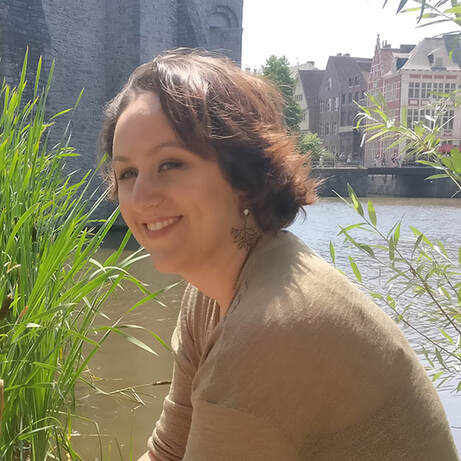
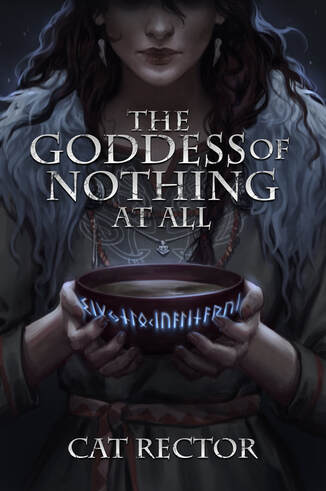
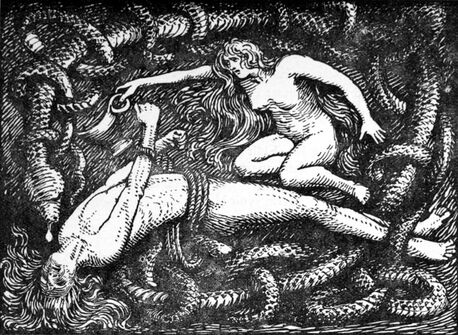
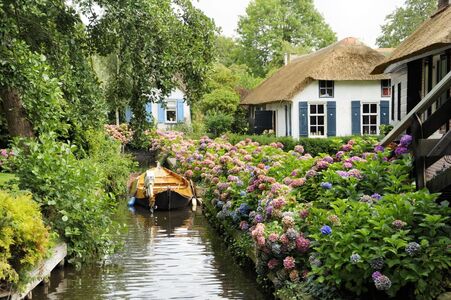
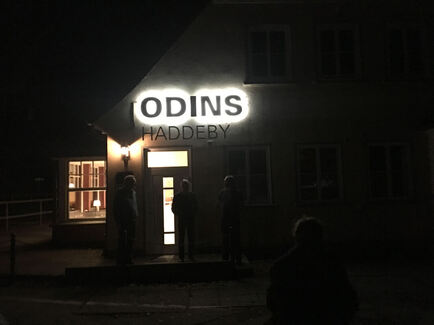
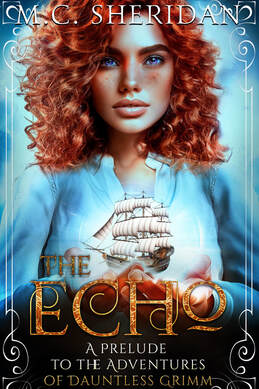
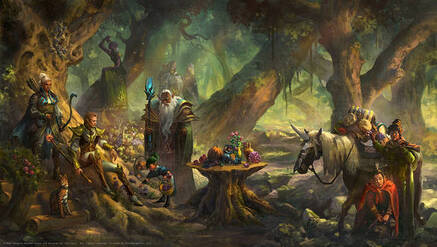
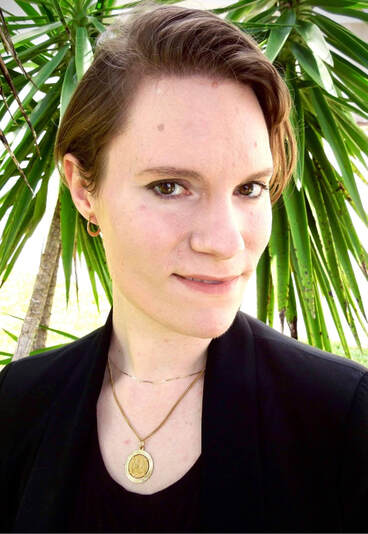


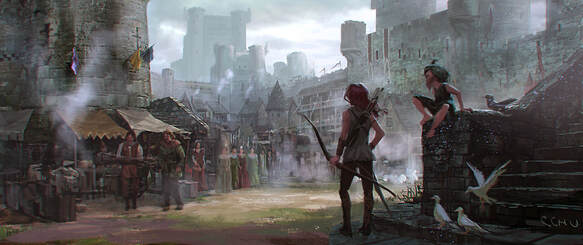
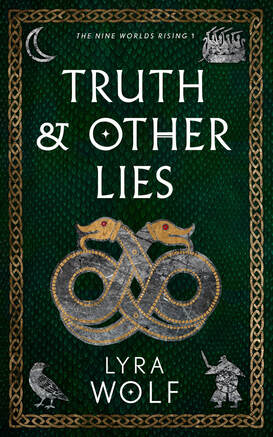
 RSS Feed
RSS Feed
